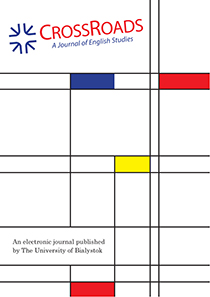Sensitivity to extralinguistic cues to identify generic and non-generic meaning
Sensitivity to extralinguistic cues to identify generic and non-generic meaning
Author(s): Daniel Karczewski, Olga BuivolovaSubject(s): Theoretical Linguistics, Applied Linguistics
Published by: Wydział Filologiczny Uniwersytetu w Białymstoku
Keywords: generics; non-generics; extralinguistic cues; adults; Russian
Summary/Abstract: Generic sentences convey generalizations about kinds. In contrast, non-generics express facts about specific individuals or groups of individuals. However, to identify generic meaning, we have to integrate multiple cues. This study tested whether the discrepancy between the noun phrase and the number of objects (extralinguistic cues) present should force a generic interpretation whereas the match between the noun phrase and the number of objects present would give rise to a non-generic interpretation. Results demonstrated that adults are sensitive to the match and the mismatch situations in three out of four conditions tested. The data also indicate the importance of world knowledge cues in construing sentences as generic.
Journal: Crossroads. A Journal of English Studies
- Issue Year: 2015
- Issue No: 03 (10)
- Page Range: 4-14
- Page Count: 11
- Language: English

